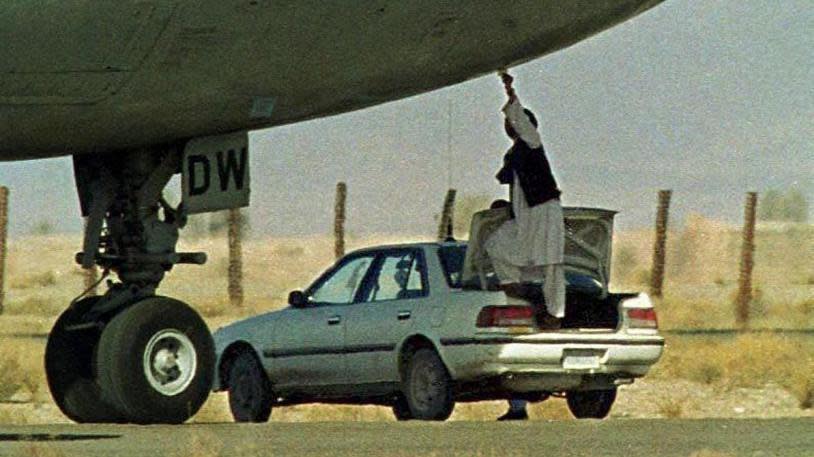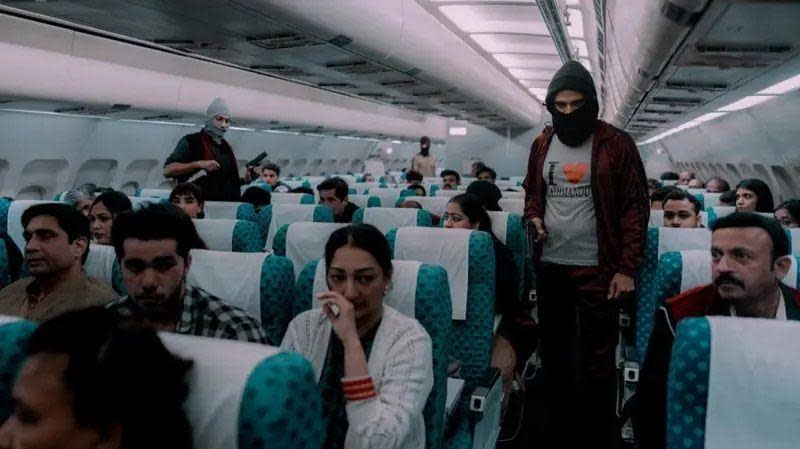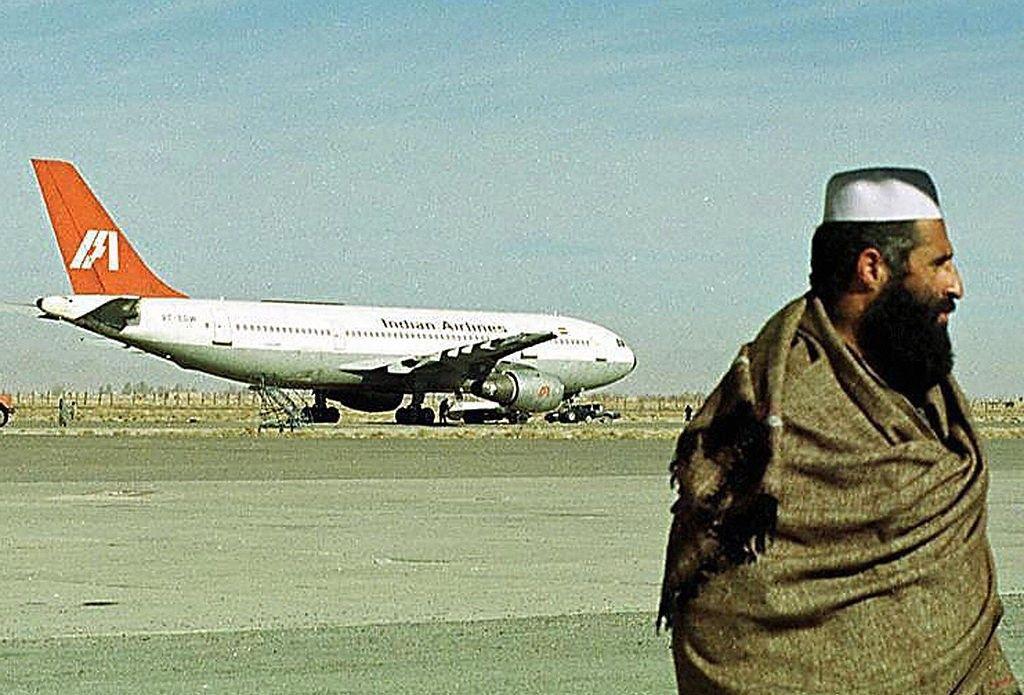A web series about the 1999 hijacking of an Indian passenger plane has stirred controversy in the country for the way some of the characters are portrayed.
Directed by Anubhav Sinha for Netflix, IC 814: The Kandahar Hijack chronicles the events surrounding the hijacking of a flight from Kathmandu to Delhi that was being taken to Taliban-ruled Kandahar to demand the release of militants held in India.
The negotiations lasted eight days and resulted in the release of three militants by the Indian government, including Masood Azharin exchange for the passengers.
India has blamed Azhar, who founded the Jaish-e-Mohammad group after his release, for several attacks in the country and has also been designated a terrorist by the United Nations.
The decision to release Azhar and others remains controversial in India, with the opposition often criticising the ruling Bharatiya Janata Party (BJP), which was also in power in 1999, for the move.
Now a new series about the hijacking has caused a stir.


What is the controversy?
The six-episode miniseries is based on Flight Into Fear: The Captain’s Story, a book by Devi Sharan, the captain of the hijacked plane, and journalist Srinjoy Chowdhury.
The series, which debuted last week, begins with the hijackers making their way onto the plane at Kathmandu’s Tribhuvan International Airport.
A few minutes after take-off, the militants announced that the plane, carrying 179 passengers, including the five hijackers and 11 crew members, had been hijacked.
The series focuses on the interactions between the hijackers, crew and passengers, and how Indian government officials work to resolve the crisis.
The row started after some social media users criticized the filmmakers for depicting the hijackers as calling each other by common Hindu names like Bhola and Shankar, even though their names were Ibrahim Athar, Shahid Akhtar Sayed, Sunny Ahmed Qazi, Mistri Zahoor Ibrahim and Shakir. All were from Pakistan.
BJP leader Amit Malviya said in a post on X (formerly Twitter) that the filmmakers had made sure that people “would think that Hindus hijacked IC-814” by using “non-Muslim” aliases of the hijackers in the series.
A right-wing Hindu organisation has filed a case in a Delhi court seeking a ban on the series. News agency PTI reported that the petition accuses the filmmaker of distorting crucial facts and misrepresenting historical events.
Several Indian media outlets, citing sources, reported that the federal government held a meeting with a senior Netflix executive over the issue.
Netflix and India’s Ministry of Information and Broadcasting did not respond to the BBC’s request for comment.


What are the facts?
Many have defended the series and claimed that the facts are accurate.
A proposition A 2000 statement from India’s Ministry of Home Affairs revealed that the hijackers used such names as aliases to communicate inside and outside the plane.
“The passengers of the hijacked place were known as (1) Chief, (2) Doctor, (3) Burger, (4) Bhola and (5) Shankar, the names by which the hijackers invariably addressed each other,” the statement said.
Witnesses and journalists who reported on the incident have also confirmed this in the past.
Kollattu Ravikumar, a survivor of the hijacking who worked as a captain of a merchant ship for an American company, confirmed the aliases in an article on Rediff News Portal from 2000.
“The four hijackers who were watching us also had a leader called Berger. It was Berger who often shouted. As Berger shouted at them, I caught the names of the others – Bola, Shankar and Doctor,” he said.
This is not the first time that international streaming platforms have faced criticism over the content on their platforms in India.
In January, Netflix a Tamil language film removed after members of hardline Hindu organizations objected to several scenes. In 2021, the cast and crew of an Amazon Prime show, Tandav, apologized after he was accused of mocking the Hindu gods.







